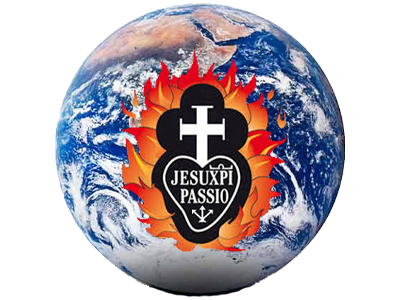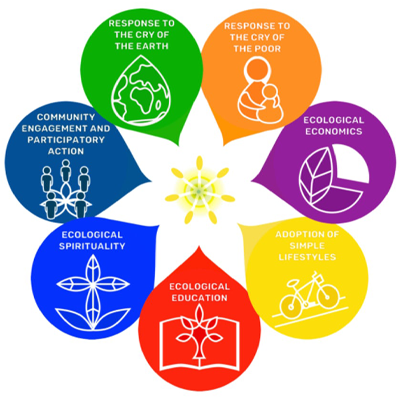Daily Scripture, September 15, 2019
 Scripture:
Scripture:
Exodus 32:7-11, 13-14
1 Timothy 1:12-17
Luke 15:1-10
Reflection:
Today’s liturgical readings provide us with a theme that is constant throughout Holy Scripture. And that is that our God is a merciful God! Our Holy Father Pope Francis has such an appreciation for this that he dedicated an entire year to it, the jubilee year of mercy of 2015 and 2016. He called this Jubilee year a time when the witness of believers might grow stronger and more effective,” he went on to say, “It is a time to bear the weakness and struggle of our brothers and sisters.” When he began the year of Mercy, Pope Francis issued a letter entitled “Misericordia Vultus”, The Face of Mercy and it can be summed up in 10 words, “Blessed are the Merciful for they will be shown Mercy.” (The 5th Beatitude) And in the 6th Chapter of Luke Our Lord issues a daunting challenge to us all, “Be Merciful as your heavenly Father is Merciful.”
When we look to today’s readings we realize just how daunting a task it is to be Merciful as our Heavenly Father is Merciful. From Exodus we find that God is perturbed, in fact He practically disowns the Israelites as He describes them to Moses as ‘Your people’. “Go down at once to your people, whom you brought out of the land of Egypt. But His Mercy always outweighs His punishment as He proves that He will listen, as Moses bargains with Him as he pleads, “Why, O Lord should your wrath blaze up against your own people?” “So the Lord relented in the punishment he had threatened to inflict on his people.” Notice now they are ‘his’ people again!
Then we go on to read of God’s great joy and mercy in finding the ‘one’ lost sheep, the ‘one’ lost coin, the ‘one’ lost sinner, the ‘one’ lost son. All are returned to great rejoicing. Alleluia!
So why is it that we have so much trouble being merciful as our heavenly Father is merciful? When someone offends us it quite often takes weeks, months, even years to forgive them. Why can’t we be merciful as our heavenly Father is merciful? Why can’t we leave the 99 sheep to recover our relationship with the one that has offended us? Why can’t we be like the Father in the parable of the Prodigal son as he runs out to his son that has been found! We should strive to do as our Holy Father has asked us to do, “it is time to bear the weakness and struggle of our brothers and sisters.” It is time to show Mercy. It is time to relieve our neighbors of their great misery. The Latin word for Mercy is Misericordia, Miseri for misery and Cordia for heart.
So, there is Mercy when Misery finds a Heart! So let us have an enlarged heart that matches the Misery in our neighbors heart, let us be merciful in order that we may shown Mercy, let us find the lost coin, the lost sheep, the lost sinner in order that there will be rejoicing in Heaven and let us see the Face of Mercy in our Lord and Savior Jesus Christ!
Deacon James Anderson is the Administrator at Holy Name Passionist Retreat Center in Houston, Texas.
Daily Scripture, September 13, 2019
 Scripture:
Scripture:
1 Timothy 1:1-2, 12-14
Luke 6:39-42
Reflection:
Why is it that our vision is 20-20 when it comes to seeing the faults of others, but we wear blinders when it comes to noticing our own? We just don’t see them, so maybe they don’t exist. Or so we fool ourselves.
In today’s gospel, Jesus challenges us with the question: “Why do you notice the splinter in your brother’s eye, but do not perceive the wooden beam in your own?” The answer, as painful as it may be, is that our faults are huge logs; the faults of others are splinters in comparison.
Perhaps the first step in removing the beam from our own eye requires being aware that it’s there. Perhaps Jesus is teaching us that the first task of a disciple is self-examination, to be aware of our blind spot. Could it be that this is what Jesus meant when he began his ministry in his hometown of Nazareth in the synagogue? It was there, in quoting Isaiah, that he announced the in-breaking of the reign of God.
“The Spirit of the Lord is upon me, because he has anointed me to bring glad tidings to the poor. He has sent me to proclaim liberty to captives and recovery of sight to the blind, to let the oppressed go free, and to proclaim a year acceptable to the Lord” (Lk 4:18-19).
Sadly, it was there in Nazareth – in blindness – that Jesus was first rejected.
Nevertheless, all the hopes and expectations promised in the Old Testament are being fulfilled in Jesus. The reign of God is breaking into the world. It cannot be stopped. How then are the disciples of Jesus – including us – to live in response to this divine rule? We begin by becoming aware of the beam in our own eye, our spiritual blindness. And in humbly acknowledging our blindness, Jesus will restore our sight. The great restoration is underway.
Deacon Manuel Valencia is on the staff at Mater Dolorosa Passionist Retreat Center, Sierra Madre, California.
Ways to Live Laudato Siˊ
Holy Cross Province Laudato Siˊ Action Platform Pledge

As Catholics and as Passionists, we have been asked by Pope Francis to seek the change of heart that is required to make the actions of the Laudato Siˊ Action Platform part of our daily lives. What Pope Francis asks of us is a “profound interior conversion” leading us toward a future in which “all people can prosper personally and economically in harmony with the gifts God has given us in nature.”
We invite the members of our Passionist family to join us, along with the global Catholic community, in this endeavor. In proclaiming the Passion of Jesus as the greatest sign of God’s love and seeking to serve the crucified of today, we believe our mission as Passionists resonates deeply with the vision, principles and fundamental concerns of Laudato Siˊ.
The International Passionist Congregation and Holy Cross Province pledge to participate in the Laudato Siˊ Action Platform called for by Pope Francis. As part of making this pledge, we support, embrace and commit to the implementation of the plan of action to address the

- Cry of the Earth,
- Cry of the poor,
- Ecological economics,
- Adoption of simple lifestyles,
- Ecological education,
- Ecological spirituality, and
- Community engagement and participatory action.
Laudato Siˊ Action Platform Launch event
On December 2, 2021, over 80 members of the Passionist Family registered for a special Zoom forum, Passionists Engage Laudato Siˊ. The event was a joint gathering of lay and vowed members of the Passionist family from St. Paul of the Cross & Holy Cross Provinces. At this special Zoom event, we affirmed our personal and corporate commitment to the LSAP and celebrated how we are already in motion, responding to the Action Platform goals and the interconnected Cry of Earth and Cry of the Poor.
Provincials, Fr. Joe Moons, CP, and Fr. Jim O’Shea, CP, began with their own strong encouragement and support for our Provinces’ seven-year journey toward fulfilling our own Laudato Siˊ Action Platform goals. We learned the basics of Laudato Siˊ and the goals of the Action Platform in coordination with the leadership of the Congregation and the Catholic Church. We heard from Fr. Don Senior, CP, on how strongly rooted the work of integral ecology is in our charism. And we were inspired by stories from throughout the province showing how folks are already making the goals of the Laudato Siˊí Action Platform a reality. As we continue our LSAP journey together as one Passionist Family, in the words of our former Superior General, Fr. Joachim Rego, CP, “may we be attentive to the Lord’s presence and respond to the path he is unfolding before us.”
Click here to read Fr. Joachim Rego, CP’s, letter of encouragement to the gathering.
Watch the entire presentation on our YouTube Channel.
Laudato Siˊ Action Platform Documents
- Letter from Superior General – English
- Letter from Superior General – Spanish
- Holy Cross Province Commitment
- Sustainable Purchasing Guide
Passion of the Earth | Wisdom of the Cross
- Session 1 – English
- Session 1 – Spanish
- Session 2 – English
- Session 2 – Spanish
- Session 3 – English
- Session 3 – Spanish
- Session 4 – English
- Session 4 – Spanish
- Session 5 – English
- Session 5 – Spanish
- Session 6 – English
- Session 6 – Spanish
Below are a few ways you can live Laudato Sí in your daily life:

- Read Pope Francis’ encyclical, Laudato Siˊ.
- Visit the Passionist Congregation’s website.
- Visit the Laudato Siˊ Action Platform website.
- Visit the Passionist Earth & Spirit Center’s website.
- Visit the Passionist Solidarity Network (PSN) website.
- Sign up to receive the PSN newsletter
- Visit the website of the Conference of the Major Superiors of Men (CMSM) and their statement on the Care of Creation.
- Click here to take the the Laudate Deum Pledge for Action.
- Check out the many programs for individuals, families, parishes and other groups at Catholic Climate Covenant.
Learn about Human trafficking. Visit:
- Catholic Sisters Against Human Trafficking
- Support businesses that take action to prevent forced labor,
like those that sign The Code of Conduct Against Child Sexual Exploitation in the Travel and Tourism Industry, or get high marks from KnowTheChain.
Daily Scripture, September 12, 2019
 Scripture:
Scripture:
Colossians 3:12-17
Luke 6:27-38
Reflection:
When I was young, I was teased mercilessly and rejected by the popular crowd. I learned that I wasn’t good enough, pretty enough, funny enough, or worth being around. Yet there were a few key people through my early years who believed in me and treated me with dignity and respect. They showed me myself, graced me with unconditional love, and nurtured my growth.
Now, as I travel, I listen to speakers at conferences and read business and personal publications, and I am constantly taught that in order to reduce the stress in my life and live with more happiness (which of course everyone wants), I need to spend my time with people who are upbeat, enjoyable, and life-giving. I need to cut out of my life as much as possible anyone who is negative or who sucks the energy out of me, anyone I don’t look forward to spending time with, or anyone who brings me down.
I think there is a bit of truth in that. We do need to feed our spirits, finding people who can act as wise sounding boards, who can truly play with us and help us retain our sense of wonder and fun, and who bring us life. Yet we are not called to love only those who love us. We are not called to pay attention only to people that we receive something from in return. This widespread advice is readily adopted everywhere I go, yet it is ultimately narrow-minded, selfish, and decidedly un-Christian.
Can you imagine those words coming out of the mouth of Jesus? Quite to the contrary, Jesus teaches that we must love our enemies, forgive endlessly, and reach out to those who have nothing or who return nothing to us. Jesus surrounded himself with disciples who didn’t understand, with sinners, and with those rejected by others. I’m sure Jesus also had people he leaned on and who supported him, people with whom he could let down and relax, and people he considered good friends. In fact, some of those good friends may also have been the very people who sinned and who sometimes didn’t understand him at all! But mainly, Jesus surrounded himself with God. He filled his soul with God, found his dignity in God, received his strength from God, and then turned around and saw the face of God in every face he encountered on earth. Can we do the same?
The problem is that we want answers now. Following the common advice, looking out for myself and associating with people who feed my own interests, is instantly gratifying, and we so strongly desire the easy path. Following the Gospel is neither easy nor instantly gratifying. It takes time, constant prayer, patience, and determined effort to look beyond the outward traits that we find so annoying and see into the hurting, wounded soul. It takes an open, Spirit-filled heart to recognize that this “distasteful” person is a child of God, a sister or brother, deserving of respect, dignity, and love. It takes generosity and grace to give freely without thought of reward. It takes strong faith to look into the face of another and see the face of Christ. And it takes persistence and fortitude to consistently treat that person accordingly, with kindness and care instead of disdain and rejection.
I am forever grateful to those instruments of God’s grace who paid attention to an “unlovable” young girl, and I have never forgotten how their love shaped and formed me. As an adult, I find myself particularly sensitive to people who are hurting or rejected. Perhaps what they need is not more rejection, but love. Perhaps they need less guilt and more forgiveness. Perhaps they need less anger and more understanding. In reality, despite any outward appearances, they are more like me than different from me. They are my neighbors, intimately connected with me in the one Body of Christ.
Ah, but that takes too much time and effort in our society. We have to look out for ourselves. We have to be “happy”. We have to focus on our own needs and make sure the people around us can fill them. Love is too demanding. The Gospel is too difficult and unrealistic. And Christ is crucified again.
Amy Florian is a teacher and consultant working in Chicago. For many years she has partnered with the Passionists. Visit Amy’s website: http://www.corgenius.com/.
Daily Scripture, September 10, 2019
 Scripture:
Scripture:
Colossians 2:6-15
Luke 6:12-19
Reflection:
I’ve been trying to improve my posture at the behest of my physical therapist. When I concentrate, I do fine, but the next thing I know I’m slouched over as my muscles return to their familiar position. St. Paul warned that the familiar is oddly comforting and incredibly easy to fall back into, even if it is destructive. He especially charged us not to be seduced by human philosophies that our discipleship has already stripped from us, and instead to do the hard and conscious work of remaining alive in Christ.
I think of this when I hear news of the recent horrific shootings and attacks against Hispanics, Muslims, immigrants, and asylum-seekers. Part of that is familiar. Growing up in rural Iowa, our town was 100% Catholic and 100% white. Instead of being taught that all people are children of the same God and part of my own family, I was taught that outsiders, Protestants, people with colored skin, or those not “like me” were dangerous and should be shunned.
Now that I reside in the Chicago area, I live, work, and regularly encounter those of other races, religions, and cultures, and I know my upbringing was wrong. I consciously choose to be open, accepting, curious, generous, and kind, and I am amazed at the common humanity that binds us all together. Yet I catch myself. I have to constantly examine my unintended reactions when, for instance:
- The person on the phone has a non-European foreign accent
- I drive into a neighborhood populated by another race or culture
- I see a woman wearing a burqa
- A young black man wearing a hoodie and low-slung jeans walks toward me on the street
Your list is likely different than mine, but all of these situations trigger emotions inside of me that I work and pray I can understand and eliminate. It is all too easy to succumb to the emotions, to go back to what once was familiar. But that is not the way of Christ. Jesus reached out to all, and especially to the immigrant, marginalized, poor, and hurting people of his day. God needs my voice to keep fighting the seductive human philosophies of power, superiority, and cruelty that would denigrate, cause suffering to, or kill these precious children of God. This is not what Jesus would do. In fact, it is against everything Jesus taught, stood for, and died for. May God help me to stand straight and tall in the Gospel, and live in a way that is true to our Christian calling.
Amy Florian is a teacher and consultant working in Chicago. For many years she has partnered with the Passionists. Visit Amy’s website: http://www.corgenius.com/.
Daily Scripture, September 9, 2019

Scripture:
Colossians 1:24-2:3
Luke 6:6-11
Reflection:
Paul the Mystic Tackles a Practical Question
Each week a pop-up on my computer suggests five top picks among weekend events taking place in the city. This week a video sampling of one of the music groups shows people searching and discovering beautifully decorated musical instruments hidden in a lush, jungle landscape, where they are making lovely music. The Museum of Fashion offers an exhibit of styles from Paris. There is a commemoration of 9/11 with a ritual for peace and healing.
There is a lot to nourish the spirit in the city. Searching and the joy of finding; peace and healing; presenting ourselves to others and the significance of our bodily presence.
Grammar school just opened and I joined a class walking to the public chapel of the monastery where there was exposition of the Blessed Sacrament. The classes will visit for a short time to pray in silence, sitting in the quiet. The focus of everyone was on the host held in the monstrance. In the line of vision behind the host is the large wooden crucifix which hangs on the wall.
The day will end in the parish with an evening Mass. Those who come will brave the sideswipe of hurricane Dorian with some rain and a messy drive. The Friday evening Mass gathers those offering prayer for the needs of the sick, as well as peace for loved ones who have died and comfort for those who mourn their passing. Those who come are not easily deterred by the weather because of the importance of their mission.
Paul’s letter to the Colossians went to people Paul had never met, but people like each of us, products of ‘Deep Time’. This is the name of the exhibit at the Smithsonian in Washington about our body through time, and the vast tree of created beings, the result of 3.7 billion years of evolution. The exhibit does not talk about our spiritual being. Yet even being made from dust, the psalmist proclaims in Psalm 8, “O Lord, our Lord, how glorious is your name over all the earth! When I behold your heavens, the work of your fingers, the moon and the stars which you set in place – what is man that you should be mindful of him?”
The Colossians have welcomed the Good News preached to them. They also have a question. How did Jesus fit into their lives, how does Jesus fit into this world through which they walk each day. Paul the mystic says tells them, “Christ is the image of the invisible God, the first-born of all creatures. In him everything was created; all were created through him and for him. It pleased God to make absolute fullness reside in him…to reconcile everything in his person, everything, I say, on earth and in the heavens, making peace through the blood of his cross.”
We have our questions, we search, we peer at the horizon. Christ in us is our hope of glory. We share this wonderful mystery it is not lessened even in suffering. How marvelous our moment in Deep Time, using talents or performing, contemplating or offering our prayers, even suffering, we are bringing Christ to completion in one another.
Fr. William Murphy, CP is the pastor of Immaculate Conception parish in Jamaica, New York.
Daily Scripture, September 8, 2019
 Scripture:
Scripture:
Wisdom 9:13-18b
Philemon 9-10, 12-17
Luke 14:25-33
Reflection:
School is in session and Jesus is the teacher
Jesus is teaching us in today’s readings on what it takes to become his disciple and he also teaches that you cannot be his disciple if you do certain things. As a teacher I know that you cannot be a good student unless you are ready to learn. Teachers can teach all they want but if the ground is not fertile the seeds of wisdom will not flourish. Throughout Jesus life, school was in session and He was the teacher. All He wanted was some good students. He performed miracles, He taught parables, He led by example and He spoke with authority.
What does it take to be a disciple of Jesus? A couple of weeks ago, we learned it takes discipline, a word derived from the same Latin root, disciplina, which means teaching or instruction. A new school year has just begun for many of us. What an appropriate time to act as a student, eager to learn what it takes to follow the Lord. Are you willing to be the pupil? School is in session today and Jesus is the teacher.
Today’s lessons are not easy. Wisdom acknowledges that God’s ways cannot be understood through human thought. There’s that leap of faith every good student must have to follow Jesus and be his disciple. Jesus, explaining what it takes to follow him, repeatedly frames the requirements as “whoever does not…cannot be my disciple.” These are the don’ts of being a good disciple. As we listen today, let us find hope in our mission as Christ’s twenty-first-century disciples. School is in session today and Jesus is the teacher.
Jesus called Simon Peter after filling his net on an otherwise fruitless evening of fishing. Having witnessed this miracle, Peter and his partners immediately left their families and jobs to follow Jesus. Jesus is now teaching by miracles. Then his teaching method switches and he teaches through the example of others. Jesus encourages would-be disciples to follow the examples of a tower builder and an army leader, each of whom deliberates at length before reaching a practical conclusion. We may be bowled over by a miracle, but it is more likely we will follow based on practical considerations. Jesus asks us to consider the practical question: is it more important to accumulate possessions or to follow the One who opened the way to eternal life? School is in session today and Jesus is the teacher.
Interestingly, each statement Jesus makes about discipleship he phrases negatively, ending with “…cannot be my disciple.” Jesus is aware that the demands of discipleship are not likely to be accepted. Jesus is challenging us to do what seems impossible, spurning one’s family, one’s possessions, one’s comfort, even one’s own life. The great teacher is now teaching through what it means to not be his disciple.
A few Sundays ago, we heard Jesus say that he would divide family members against each other (Luke 12:52-53). Now he tells the crowd that his disciples must hate their families (14:26). Is Jesus really anti-family? No, He is not anti-family, this is an old Semitic Idiom, which means He is more important. Perhaps He just wants to redefine “family.” Look at Onesimus in the second reading. Seen as a slave, he was excluded from Philemon’s family. But Paul is encouraging and positive, speaking of the conversion of someone who was once a slave, but is now a brother and partner. So Paul urges Philemon to welcome Onesimus as a partner and brother as well. Families are wonderful, but the Christian family can be so much more. Perhaps it’s not the members of one’s family Jesus is criticizing, but our narrow concept of “family.” School is in session today and Jesus is the teacher.
Deacon Peter Smith serves at St. Mary’s/Holy Family Parish in Alabama, a religion teacher at Holy Family Cristo Rey Catholic High School in Birmingham, and a member of our extended Passionist Family.
